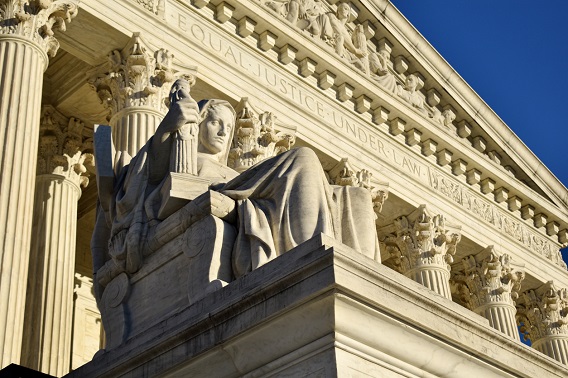Supreme Court Rules Insurers Have Say in Asbestos Bankruptcies
Legislation & LitigationWritten by Travis Rodgers | Edited By Amy Edel

U.S. Supreme Court Justice Sonia Sotomayor delivered the Court’s unanimous ruling that Truck Insurance Exchange had the right to a seat at the table when asbestos companies Kaiser Gypsum Co. and Hanson Permanente Cement filed for Chapter 11 bankruptcy. The court ruled Truck Insurance is a “party of interest.”
Kaiser and its parent company Hanson filed their bankruptcy plan because the companies faced thousands of asbestos lawsuits. As the insurance company for an asbestos manufacturer, Truck Insurance would be on the hook for paying claims, but wasn’t able to weigh in on elements of the reorganization plan that could affect those payments.
Hanson and Kaiser agreed to a $50 million proposed settlement and reorganization plan creating an asbestos trust fund. Both companies filed for bankruptcy in 2016. Truck Insurance had argued Kaiser and Hanson’s plan didn’t adequately weed out fraudulent claims from people claiming asbestos exposure from their products.
When the District Court heard Truck Insurance Exchange v. Kaiser Gypsum Co., Inc. et al., it ruled the plan was “insurance neutral” and rejected Truck Insurance’s challenge. The 4th Circuit Court of Appeals affirmed that ruling saying Truck Insurance wasn’t a “party in interest.”
Justice Sotomayor, however, said applying a doctrine of “insurance neutrality” was “conceptually wrong and makes little practical sense.” She explained it didn’t account for the fact that the bankruptcy settlement eliminated both Kaiser and Hanson’s liability and its incentives to defend or reduce the cost of asbestos claims.
Potential Impact on Future Asbestos Bankruptcies
This case has the potential to impact other mass tort bankruptcies involving large numbers of claimants and insurance-funded settlements according to legal experts. Truck Insurance’s lawyers argue the Supreme Court’s ruling will help ensure greater oversight in the bankruptcy process.
“This could be the most consequential tort reform issue to be decided this year,” said Tancred Schiavoni who represented the insurers. “Simply giving insurers a voice will provide helpful oversight in mass tort bankruptcies, which aim to aggregate and settle large numbers of claims quickly.”
Many companies that mined or used asbestos, including those that manufactured or sold asbestos products, have opted for “reorganization” bankruptcy when facing mounting lawsuits. It allows companies to stay in business, continue operating to generate cash flow, retain assets and restructure debts or obligations. Through this process they typically created asbestos trust funds to compensate claimants.
Johnson & Johnson, for example, has been trying to declare bankruptcy as it faces more than 50,000 talc lawsuits. Plaintiffs in litigation against J&J allege the company’s talc-based baby powder was contaminated with asbestos.
A judge denied J&J’s first two attempts, saying the company didn’t qualify for bankruptcy protection because it wasn’t in financial distress. As the company considers a third bankruptcy attempt, a group of cancer patients filed a class action lawsuit in May 2024 claiming J&J is trying to avoid its obligations. That same month, J&J’s subsidiary LLT Management LLC agreed to pay $6.475 billion to settle all current and future ovarian cancer claims.






